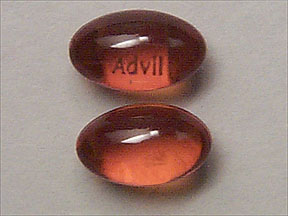Advil Migraine Interactions
There are 413 drugs known to interact with Advil Migraine (ibuprofen), along with 11 disease interactions, and 2 alcohol/food interactions. Of the total drug interactions, 99 are major, 299 are moderate, and 15 are minor.
- View all 413 medications that may interact with Advil Migraine
- View Advil Migraine alcohol/food interactions (2)
- View Advil Migraine disease interactions (11)
Most frequently checked interactions
View interaction reports for Advil Migraine (ibuprofen) and the medicines listed below.
- acetaminophen
- Aleve (naproxen)
- aspirin
- atorvastatin
- baclofen
- Benadryl (diphenhydramine)
- bupropion
- buspirone
- cyclobenzaprine
- Excedrin Migraine (acetaminophen / aspirin / caffeine)
- gabapentin
- hydroxyzine
- lisinopril
- lorazepam
- melatonin
- metformin
- naproxen
- omeprazole
- prednisone
- promethazine
- propranolol
- topiramate
- tramadol
- trazodone
- Tylenol (acetaminophen)
- Tylenol Extra Strength (acetaminophen)
- Vitamin B12 (cyanocobalamin)
- Vitamin D3 (cholecalciferol)
- Zoloft (sertraline)
- Zyrtec (cetirizine)
Advil Migraine alcohol/food interactions
There are 2 alcohol/food interactions with Advil Migraine (ibuprofen).
Advil Migraine disease interactions
There are 11 disease interactions with Advil Migraine (ibuprofen) which include:
- asthma
- fluid retention
- GI toxicity
- rash
- renal toxicities
- thrombosis
- PKU
- anemia
- hepatotoxicity
- hyperkalemia
- platelet aggregation inhibition
More about Advil Migraine (ibuprofen)
- Advil Migraine consumer information
- Compare alternatives
- Pricing & coupons
- Reviews (1)
- Drug images
- Latest FDA alerts (14)
- Side effects
- Dosage information
- During pregnancy
- Drug class: Nonsteroidal anti-inflammatory drugs
- Breastfeeding
- En español
Related treatment guides
Drug Interaction Classification
| Highly clinically significant. Avoid combinations; the risk of the interaction outweighs the benefit. | |
| Moderately clinically significant. Usually avoid combinations; use it only under special circumstances. | |
| Minimally clinically significant. Minimize risk; assess risk and consider an alternative drug, take steps to circumvent the interaction risk and/or institute a monitoring plan. | |
| No interaction information available. |
Further information
Always consult your healthcare provider to ensure the information displayed on this page applies to your personal circumstances.


